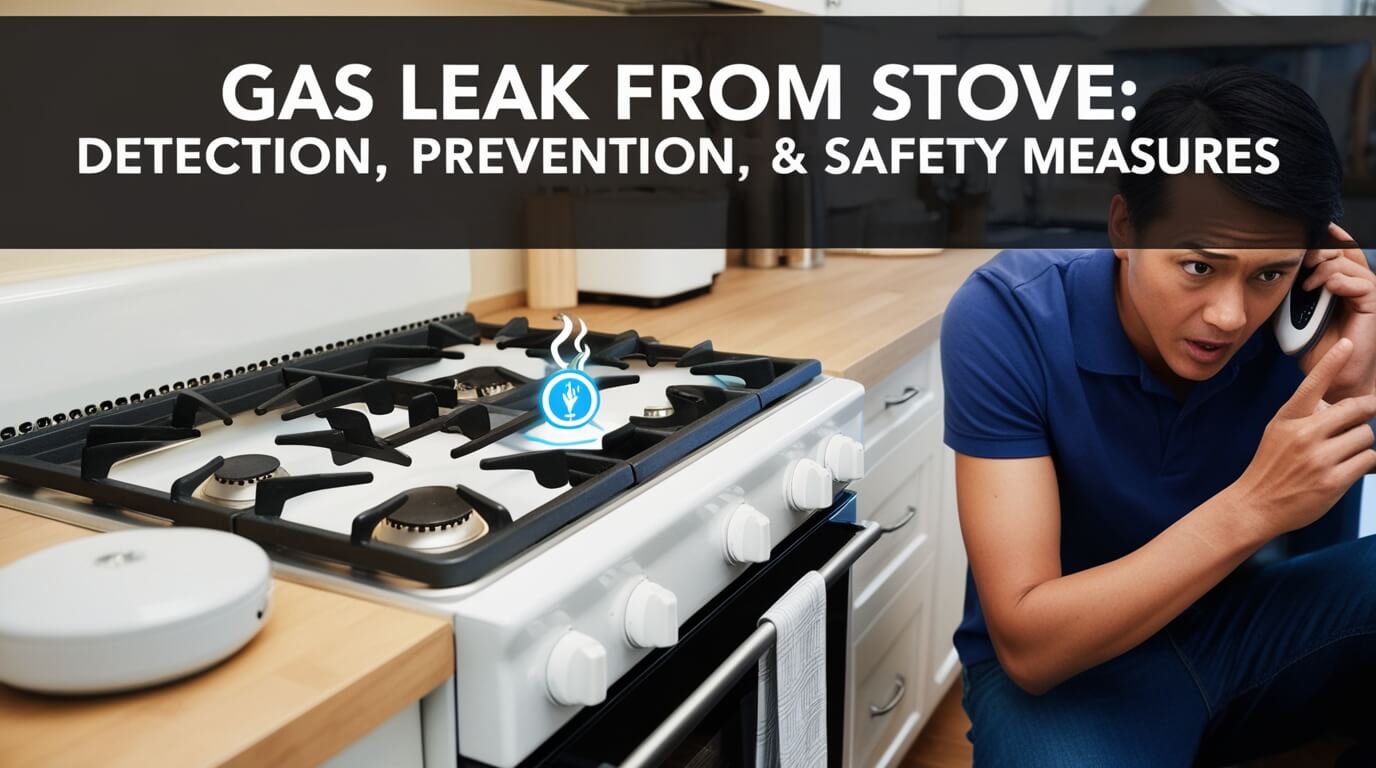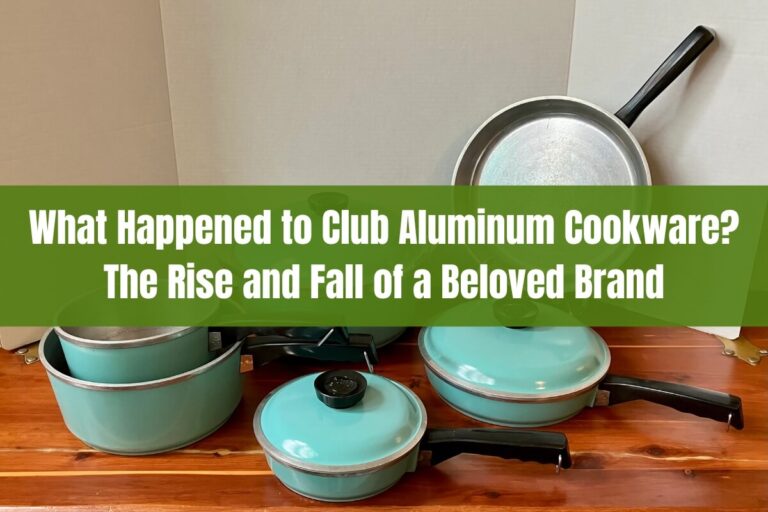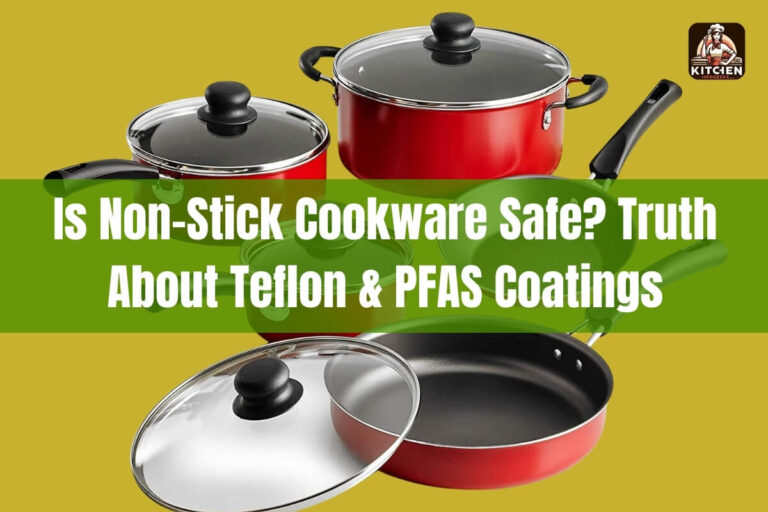
A gas leak from your stove can be a serious safety hazard, potentially leading to fire, explosion, or health issues. Recognizing the signs of a gas leak, knowing how to respond, and taking preventive measures are crucial for keeping your home and family safe. This guide covers everything you need to know about gas stove leaks, from detection to prevention.
Understanding Gas Stoves and Leaks
Gas stoves are popular for their precise temperature control and instant heat. But like any gas appliance, they can develop leaks over time.
How Gas Stoves Work
Gas stoves connect to your home’s natural gas or propane supply. When you turn a burner knob, it opens a valve, allowing gas to flow. The gas mixes with air and ignites, creating a flame for cooking.
Common Causes of Gas Leaks in Stoves
Several factors can lead to a gas leak:
- Loose connections
- Worn-out seals or gaskets
- Damaged gas lines
- Faulty valves
- Improper installation
Regular wear and tear or accidental damage can also cause leaks.
Signs of a Gas Leak from Your Stove
Spotting a gas leak early is key to preventing dangerous situations.
Smell: The First Warning Sign
The most obvious sign is the smell. Natural gas and propane have no odor, but suppliers add a strong, sulfur-like scent called mercaptan. If you notice a rotten egg smell near your stove, it could be a gas leak.
Visual Indicators
Look for these visual clues:
- Yellow or orange flames instead of blue
- Soot or black marks around the burners
- Excessive condensation on windows
Audible Clues
Listen for hissing or whistling sounds near gas connections. These noises might indicate escaping gas.
Physical Symptoms
Gas leaks can cause health issues. Watch for:
- Dizziness
- Nausea
- Headaches
- Fatigue
- Difficulty breathing
If you experience these symptoms at home but feel better outside, it could be due to a gas leak.
Detecting Gas Leaks: Tools and Techniques
Besides using your senses, there are specific tools and methods to detect gas leaks.
Using Gas Detectors
Install a gas detector in your kitchen. These devices sound an alarm when they sense gas levels above safe thresholds. Some models can detect both natural gas and carbon monoxide.
The Soap Bubble Test
For a DIY approach:
- Mix dish soap with water
- Apply the solution to gas connections
- If bubbles form, there’s likely a leak
Professional Leak Detection Services
For peace of mind, consider hiring a professional. They use specialized equipment to detect even small leaks accurately.
Immediate Steps to Take When You Suspect a Stove Gas Leak
If you think your stove is leaking gas, act fast.
Safety First: Evacuation and Ventilation
- Don’t turn on lights or use any electrical devices
- Open windows and doors
- Evacuate everyone from the house, including pets
Contacting Emergency Services
Once outside:
- Call your gas company’s emergency line
- If you can’t reach them, call 911
- Don’t go back inside until professionals give the all-clear
Do’s and Don’ts During a Gas Leak
Do:
- Turn off the gas supply if you know how and it’s safe to do so
- Wait outside for help
Don’t:
- Light matches or candles
- Use your phone inside the house
- Try to find or fix the leak yourself
Prevention: Keeping Your Gas Stove Safe
Preventing gas leaks is easier and safer than dealing with them after they occur.
Regular Maintenance and Inspections
Schedule annual inspections by a qualified technician. They can spot potential issues before they become dangerous.
Proper Installation and Connections
Ensure your stove is installed by a licensed professional. They’ll use the right connections and follow safety codes.
Educating Household Members on Gas Safety
Teach everyone in your home about gas safety:
- How to recognize the smell of gas
- What to do if they suspect a leak
- The importance of proper stove use
Long-Term Solutions for Gas Stove Safety
Consider these options for enhanced safety:
Upgrading to Modern Safety Features
Newer gas stoves often have safety features like:
- Automatic shut-off valves
- Flame failure devices
- Child safety locks
Considering Alternative Cooking Options
If you’re concerned about gas safety, you might explore alternatives:
- Electric stoves
- Induction cooktops
- Portable electric burners
These options eliminate gas-related risks entirely.
Health Risks Associated with Gas Stove Leaks
Gas leaks can pose serious health hazards.
Short-Term Effects of Gas Exposure
Immediate symptoms can include:
- Eye and throat irritation
- Breathing difficulties
- Nausea
- Dizziness
Long-Term Health Concerns
Prolonged exposure to gas leaks may lead to:
- Respiratory issues
- Increased risk of certain cancers
- Neurological problems
Children and the elderly are often more vulnerable to these effects.
Environmental Impact of Gas Leaks
Gas leaks don’t just affect your home; they have broader environmental implications.
Methane Emissions and Climate Change
Natural gas is mostly methane, a potent greenhouse gas. Leaks contribute to climate change, even if they seem small.
Indoor Air Quality Concerns
Gas stoves can affect indoor air quality, even without leaks. Proper ventilation is crucial for maintaining healthy air in your home.
Legal and Insurance Considerations
Understanding your rights and responsibilities is important when dealing with gas appliances.
Landlord and Tenant Responsibilities
In rental properties:
- Landlords are typically responsible for maintaining gas appliances
- Tenants should report suspected leaks immediately
Know your local laws regarding gas safety in rentals.
Insurance Coverage for Gas-Related Incidents
Check your home insurance policy:
- Does it cover damage from gas leaks?
- Are there specific requirements for maintaining gas appliances?
Understanding your coverage can save headaches later.
Myths and Misconceptions about Gas Stove Leaks
Let’s clear up some common misunderstandings.
Debunking Common Beliefs
Myth: Small gas leaks are harmless. Fact: Even small leaks can be dangerous and should be addressed immediately.
Myth: You can always smell a gas leak. Fact: While gas companies add a scent, some people may not notice it, especially if the leak is small or they have a reduced sense of smell.
Separating Fact from Fiction
Fact: Gas leaks can occur even in new stoves. Fact: Regular maintenance can significantly reduce the risk of leaks. Fact: Carbon monoxide detectors don’t detect natural gas leaks; you need a specific gas detector.
The Bottom Lines
Gas leaks from stoves are serious but preventable issues. By understanding the signs, knowing how to respond, and taking proactive safety measures, you can enjoy the benefits of your gas stove while minimizing risks. Regular maintenance, proper use, and awareness are key to keeping your kitchen safe from gas leaks. Remember, when in doubt, it’s always better to err on the side of caution and seek professional help.
Stay safe, stay informed, and enjoy cooking with confidence!






